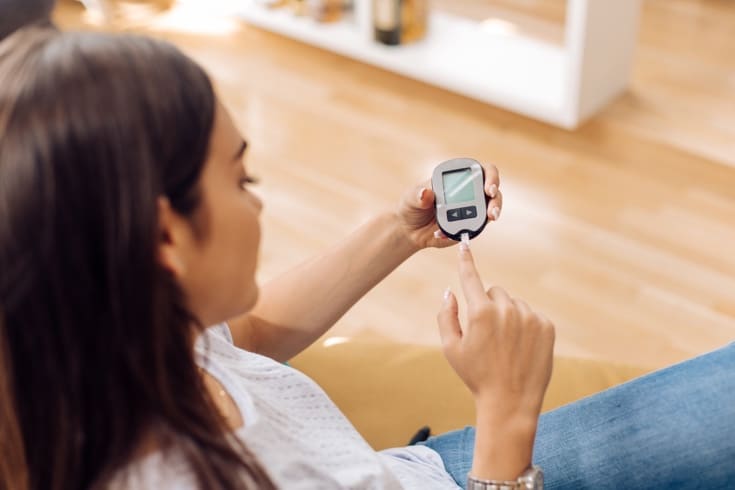Did you know that diabetes is one of the fastest-growing chronic illnesses worldwide? As the eighth leading cause of death, diabetes was responsible for an estimated 6.7 million deaths in 2021 — that’s nearly one every five seconds.
The alarming rise in diabetes cases is fueled by an increase in the senior population, rising obesity rates, and more sedentary lifestyles. Today, more than 540 million adults live with diabetes and within the next 20 years projections show that roughly 783 million adults, or 1 in 8 people, will have the disease—a staggering 46% increase. These statistics highlight the widespread prevalence of diabetes and the urgent need for more effective prevention, management, and treatment strategies.
What is Diabetes?
Diabetes is a chronic health condition that occurs when the body is unable to properly regulate blood sugar (glucose) levels. This happens either because the pancreas doesn’t produce enough insulin, or the body can’t use the insulin it makes effectively. Managing diabetes typically requires a combination of healthy lifestyle changes, medications, and consistent monitoring of blood sugar levels to prevent complications.
Challenges of Diabetes Management
Managing diabetes requires regular monitoring and care, which can be challenging for patients and healthcare providers alike. Poor diabetes management increases the risk of severe complications such as heart disease, kidney damage, nerve issues, vision problems, and frequent infections. Other challenges with diabetes care can include:
Low Awareness and Late Diagnosis
Many individuals with diabetes go undiagnosed or diagnosed too late, leading to complications, and worsening of the condition.
Patient Adherence
Many patients struggle to stick to their care plans—medication regimens, lifestyle changes, and regular monitoring. Additionally, non-adherence can lead to complications and poor outcomes.
Patient Education
Some patients may not fully understand their condition, leading to improper self-management. Continuous education on managing diabetes, recognizing symptoms, and preventing complications is necessary but often lacking.
Access to Care
Patients in rural or underserved areas often have limited access to healthcare providers and diabetes specialists. This makes regular monitoring and treatment adjustments more difficult, leading to less optimal management.
Fortunately, digital health technology is transforming how diabetes care is being delivered. Remote patient monitoring (RPM) and chronic care management (CCM) programs have demonstrated their effectiveness in helping to manage diabetes, improve health outcomes, and easing the burden on patients and the healthcare system.
What are RPM and CCM?
RPM uses digital devices to track key health metrics, such as blood glucose levels, blood pressure, weight, and heart rate, in near real-time. For diabetes patients, smart glucose meters are widely used to send health data directly to healthcare providers, allowing them to monitor patients remotely and intervene when necessary.
CCM offers a coordinated approach to managing long-term chronic conditions like diabetes. It includes regular communication between patients and healthcare providers, such as monthly check-ins, medication management, care coordination and lifestyle coaching. CCM programs are particularly beneficial for patients with multiple chronic conditions, providing ongoing support and personalized care plans.
How RPM and CCM Benefit Diabetes Patients
Improved Blood Glucose Control
Maintaining stable blood glucose levels is one of the biggest challenges for diabetes patients. RPM allows for near real-time tracking of glucose levels so healthcare providers can detect changes or potential health complications earlier and act quickly. For example, if a patient’s blood glucose levels are consistently high or low, care teams are notified and can intervene promptly by adjusting medications or recommending lifestyle changes. This early detection is critical for enabling more timely interventions that reduce the risk of diabetes-related complications.
Personalized Care and Enhanced Quality of Life
Managing diabetes is a daily effort that can overwhelm patients. CCM programs provide diabetes patients with a personalized care plan based on their specific health needs. This ongoing support helps patients manage their condition more effectively over time.
Meanwhile, RPM programs offer peace of mind by tracking health data and notifying both the patient and the healthcare provider if something is outside of the normal range. Together, RPM and CCM deliver personalized care and support that help improve health outcomes and overall quality of life.
Increased Self-Management and Patient Engagement
RPM and CCM encourage patients to take an active role in their own health. By giving patients access to their health data and care team, they are more engaged in managing their condition, which empowers them to make better decisions about their care.
Proven Effectiveness of RPM and CCM for Diabetes Management
Numerous studies have demonstrated the effectiveness of RPM and CCM in improving diabetes care. One study investigated the impact of the 100Plus RPM platform on key metrics in hypertension, diabetes and weight loss for over 31,000 patients. The results demonstrated:
Mean Improvement in Clinical Parameters Over the First 180 Days
- An average reduction of 9.3 mg/dL in blood glucose for diabetic patients
- An average weight loss of 12.1 lbs. for patients starting at more than 286 lbs.
- An average decrease of 16mmHg systolic when starting at 140+ mmHg.
- An average decrease of 8.9 mmHg diastolic when starting at 140+ mmHg.
Another study surveyed 25 healthcare organizations using RPM programs for a variety of use cases, including diabetes care and found that 38% reported reductions in hospital admissions and 25% reported reductions in readmissions and ER visits. In addition, seventeen percent reported quantified cost reductions from these outcomes.
Furthermore, a study conducted by The Centers for Medicare and Medicaid Services (CMS) found that patients participating in CCM programs had lower hospital, emergency department, and skilled nursing facility costs and a reduced likelihood of hospital admissions.
The Future of Diabetes Care with RPM and CCM
As diabetes cases continue to rise and healthcare resources are increasingly stretched thin, integrating RPM and CCM into diabetes care is essential to achieving efficient, cost-effective, and high-quality care. These programs enhance blood glucose control, reduce hospitalizations, and support patients in actively managing their health. As the healthcare landscape evolves, RPM and CCM will become a new standard of care for providers and health systems looking to improve patient outcomes, increase health awareness, and enhance the quality of life for those living with diabetes.
Start The Path Toward Better Patient Care
Have questions about how remote patient monitoring for healthcare will work for you and your patients? Let’s have a conversation.
Access the Latest RPM News
Stay up to date with the latest news, articles and webinars about remote patient monitoring and telehealth.
"*" indicates required fields



